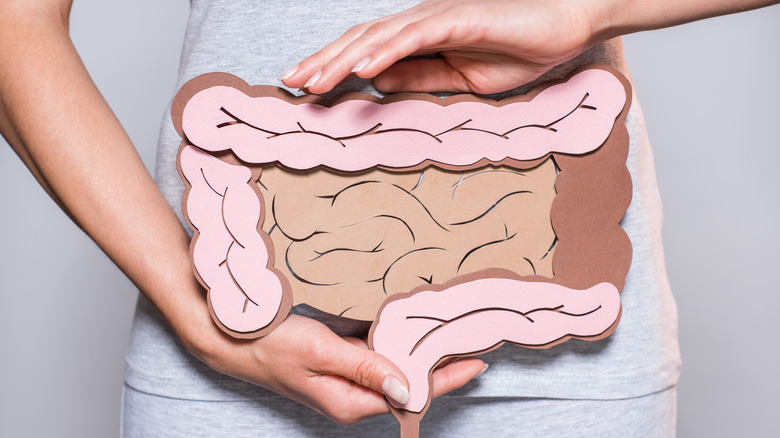The Colon Disease That You May Develop From Constipation
Most of us are familiar with how uncomfortable it feels when we have trouble with a bowel movement. According to Mayo Clinic, constipation is described as having less than three bowel movements per week. Occasional constipation is not uncommon and usually not a cause for concern. However, chronic constipation can interfere with your health.
For some, having difficulty with bowel movements is a normal way of life. A 2020 study in the American Journal of Gastroenterology revealed that three out of five Americans who have chronic constipation have never discussed it with their doctors. However, chronic constipation is a health concern that can disrupt the way your colon functions and can cause damage to the colon itself.
If your stools are hard and lumpy, if you're straining during bowel movements, or if you feel like something is stopping you from eliminating, you may be chronically constipated. This is problematic because, over time, the constant pressure on the colon can cause long-term complications (via Mayo Clinic).
Chronic constipation can lead to diverticular disease
Constipation happens when the colon draws too much water from the stool, leading them to dry and harden. This creates a stool that is difficult to pass (via Cleveland Clinic). Unfortunately, constipation can cause the development of diverticula.
Registered dietician Anna Taylor tells the Cleveland Clinic, "People develop polyps due to years of excessive muscular contractions as the body attempts to move small, hard stools." Polyp formation in the colon is called diverticular disease. If the polyps don't cause any discomfort or pain, this is called diverticulosis. If polyps become infected and cause symptoms like bloating, diarrhea, cramping, or pain, this is called diverticulitis.
If you are chronically constipated, you should talk to your doctor about options for relief. A dietician can offer a plan to help you implement a special diet (likely one that is high in fiber) and offer lifestyle recommendations that can help prevent or decrease your constipation.


